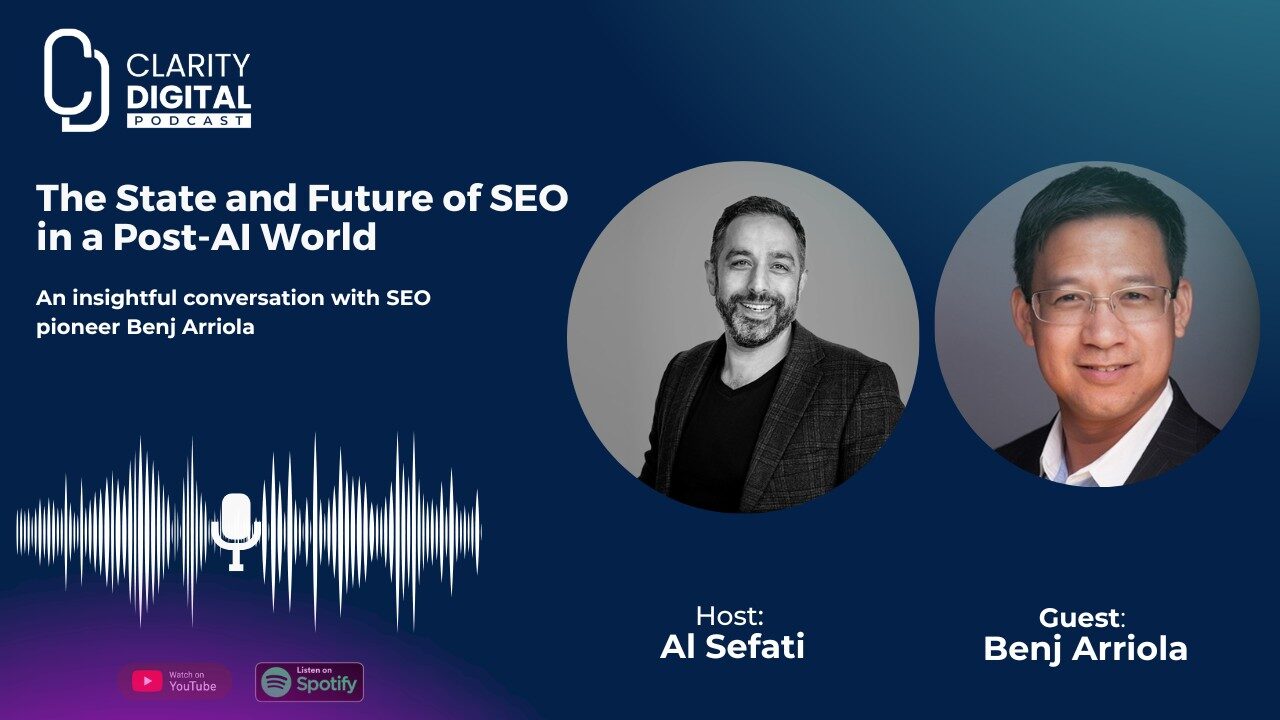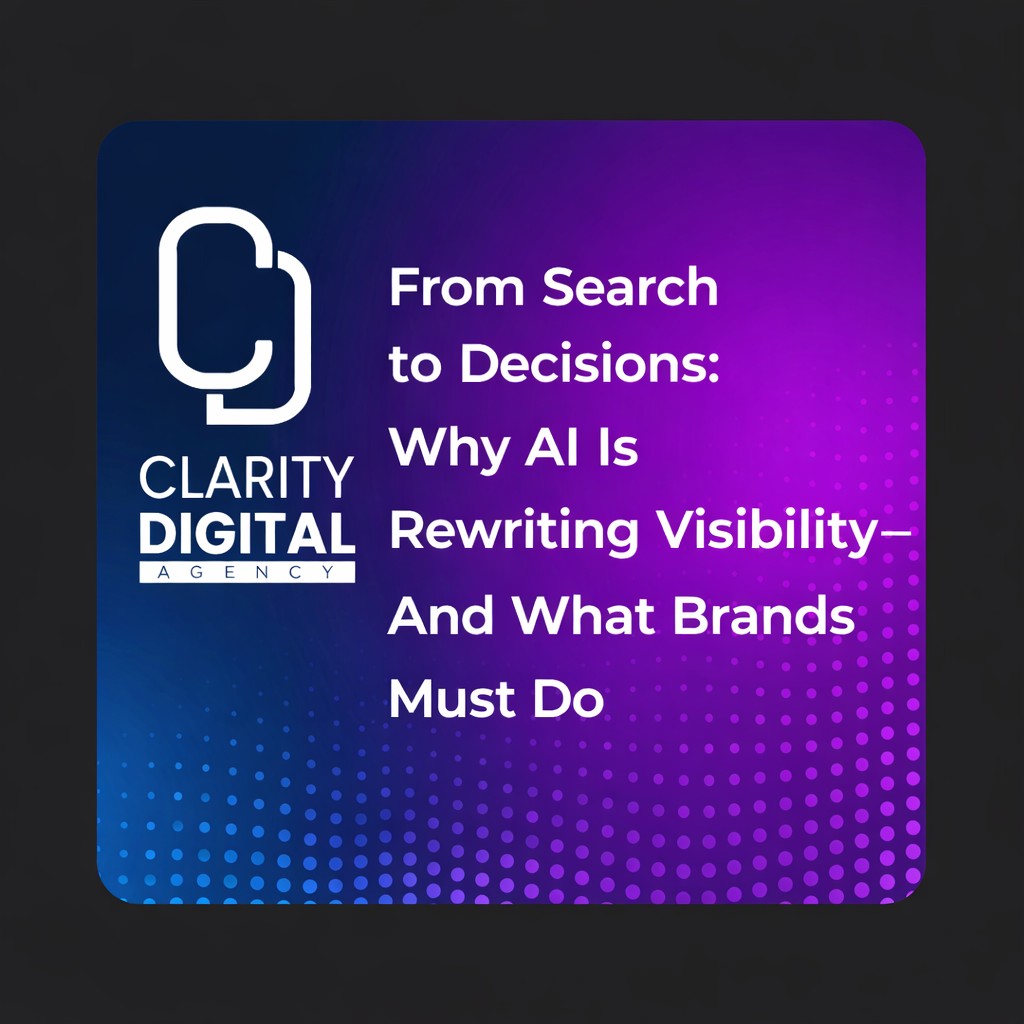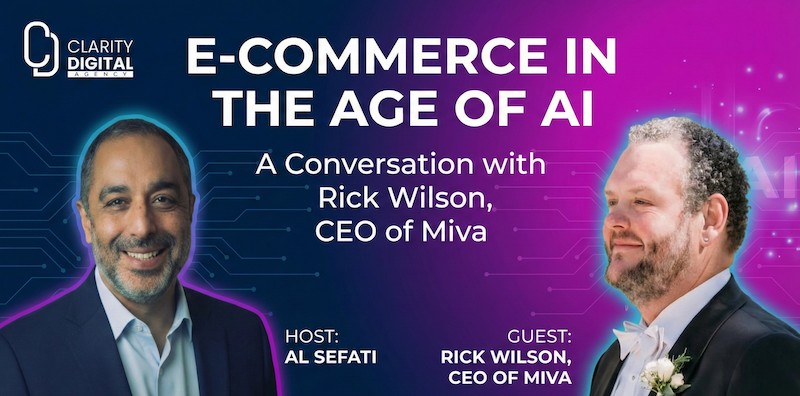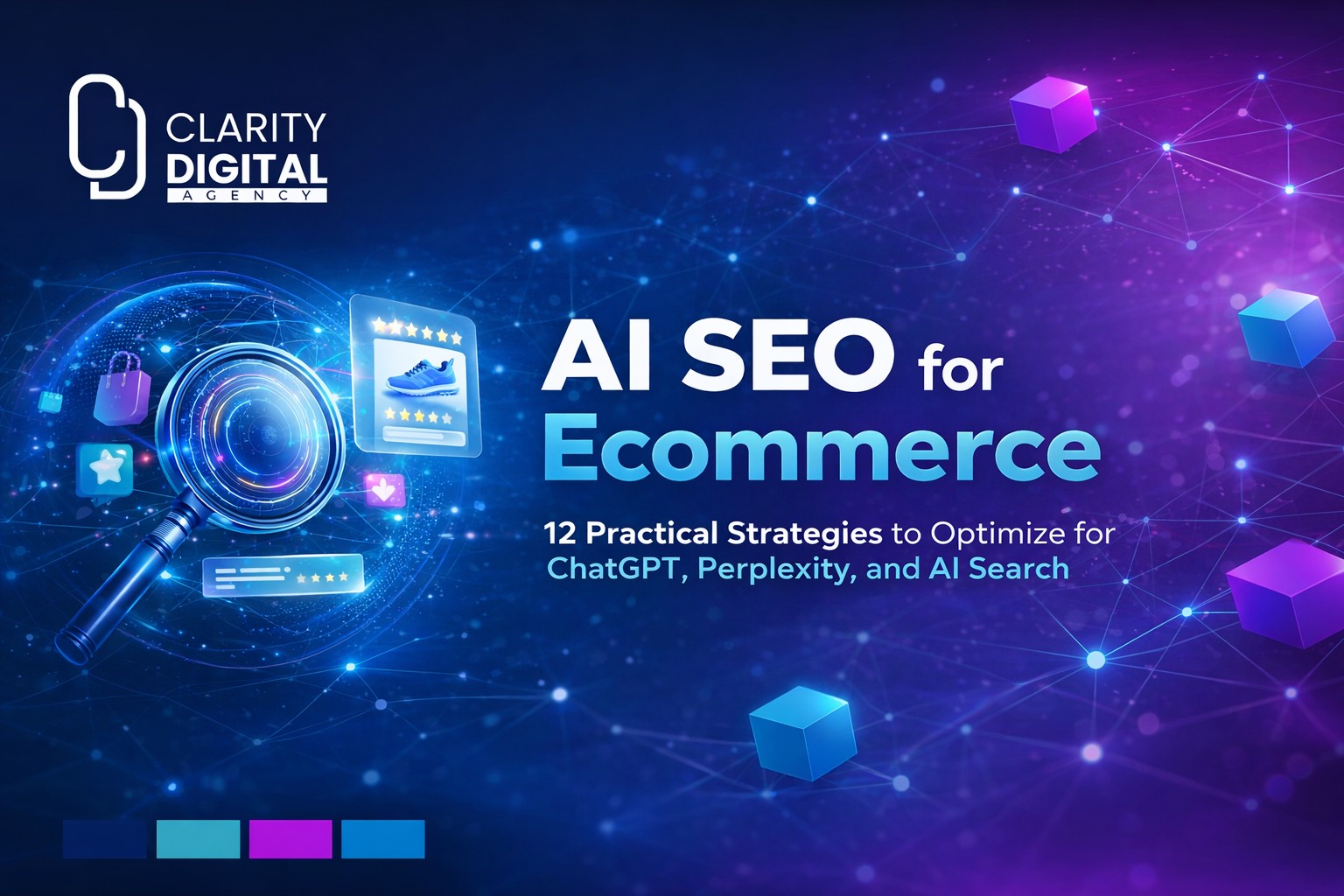The State and Future of SEO in a Post-AI World: A Conversation with Benj Arriola
On this episode of Clarity Digital Pod, I had the pleasure of reconnecting with an old friend, mentor, and one of the earliest pioneers of SEO, Benj Arriola. For those of us who’ve been around this industry for a while, Benj needs no introduction. He has spoken at countless conferences, worked with major agencies, and helped shape the way many of us think about search optimization. For me personally, Benj played a critical role when I was transitioning from being a developer to a full-time SEO back in the mid-2000s.
We dove deep into how search has evolved, how AI is impacting the field, and what the future holds for both SEOs and the clients they serve. Let’s get into it.
Benj Arriola’s journey from chemist to veteran SEO professional
Benj did not begin his career in marketing. He started as a chemist before becoming a web designer and developer in the late 1990s. By 2006 he was already working in SEO, navigating the early days of link building, on page optimization, and Google algorithm updates. Over the years he has held positions in agencies, worked in-house as an SEO and data analyst, and eventually found his home leading SEO strategy at 85Sixty, a digital agency with offices in San Diego and Denver. His agency works with e-commerce companies, hospitality brands, and action sports clients.
How artificial intelligence is changing search behavior and SEO traffic
The biggest shift in SEO today comes from artificial intelligence tools such as ChatGPT, Perplexity, Gemini, and Microsoft Copilot. Benj explained that although AI referrals are still smaller compared to organic traffic from Google, the growth rate is significant. Users are adopting these tools to answer early stage questions, plan their day, or look up general information. However, when they reach the buying stage they often return to Google, branded searches, maps, or even physical stores. This shows that AI is strongest at the top of the funnel while traditional SEO is still critical at the bottom of the funnel where buying intent is higher.
Measuring SEO success with new KPIs and multi touch attribution
One of the challenges SEOs face is how to measure performance in this fragmented search environment. Benj pointed out that AI tools do not provide pre click data like impressions or rankings that Google Search Console provides. What you can track today is AI driven traffic after the click by segmenting it in Google Analytics 4 or Adobe Analytics. He recommended creating your own AI traffic channel until the platforms introduce it officially. He also cautioned against focusing too much on rankings whether in Google or AI platforms. Instead he emphasizes looking at aggregate data such as impressions, traffic, and conversions and building multi touch attribution models that show how channels contribute at different stages of the funnel.
Why SEOs must think like marketers in the age of AI search
Technical SEO skills are important but Benj believes modern SEOs must understand marketing fundamentals to remain valuable. SEO is not done in isolation. It interacts with PR, paid search, social media, and analytics. To deliver results you must collaborate with other teams and understand how each channel influences discovery and conversion. SEOs who stay siloed in technical work or link building will miss the bigger picture.
Educating clients and executives about the evolving role of SEO
Another theme we discussed was how to educate stakeholders. Many executives still equate SEO success with rankings alone. Benj recommends spending significant time during onboarding to explain not only what you are doing but why you are doing it. Set expectations about SEO’s evolving role in the customer journey. Some stakeholders may resist new ideas but by using data, case studies, and consensus from the industry you can win them over.
Is SEO still a good career choice in a post AI world
With so much change it is natural to ask if SEO is still a career worth pursuing. Benj believes the answer is yes. SEO is not going away but the definition of optimization is expanding. He refers to it as search everywhere optimization. Whether the search happens on Google, an AI chatbot, a social platform, or a voice assistant, brands will always need to be discovered. For newcomers the key is to embrace change rather than fear it.
Why technical SEO continues to matter for enterprises
Technical SEO is still important but its weight depends on the environment. Smaller companies that use WordPress, Shopify, or Magento can solve many technical issues with plugins and themes. Larger enterprises with custom CMS platforms require deeper technical audits to fix site architecture, Core Web Vitals, JavaScript rendering, and crawl efficiency. Technical SEO will remain a pillar of the practice but should be right sized for the business.
Content strategy best practices for SEO in the era of artificial intelligence
We also explored how content strategy is evolving. In the past SEOs focused on long form keyword dense articles. Today quality matters more than quantity and what qualifies as quality depends on the industry. For example e-commerce sites may naturally repeat keywords more often while other verticals require more variation. Benj advises analyzing the top 10 results in your niche to understand what Google rewards and aligning your content to those benchmarks. He also warned against obsessing over whether AI tools like Perplexity list your brand on a given day since their results are probabilistic and constantly changing.
Off page SEO and digital branding strategies for AI visibility
Off page SEO has also changed. Guest posting and backlinks still work when done ethically but brand mentions and PR campaigns are now critical for AI visibility. AI platforms often describe brands based on how they are cited across the web including directories, news outlets, and social media. The more your brand is mentioned in trusted places the more likely you are to appear in AI generated answers. SEOs should partner with PR and social teams to amplify content, pursue thought leadership opportunities, and encourage brand mentions. The goal is not only to earn backlinks but to build overall digital presence.
The decentralization of search and what it means for SEO’s future
The most important takeaway from our conversation is that SEO is not dying but decentralizing. AI tools may change how people discover information but the need to optimize for visibility will never disappear. The brands that thrive will be those that treat SEO as an omnichannel discipline and optimize across search engines, AI platforms, and social feeds. The role of the SEO professional is expanding and those who adapt will continue to add value.
About Benj Arriola
Benj Arriola is an SEO veteran with nearly two decades of experience. He currently leads SEO at 85Sixty where he works with clients in e-commerce, hospitality, and action sports. Based in San Diego, Benj enjoys home improvement projects, Filipino food, and the occasional steak. His favorite superhero since childhood has always been Spider-Man.
Listen to the full episode of Clarity Digital Pod to hear The State and Future of SEO in a Post AI World, A Conversation with Benj Arriola.





